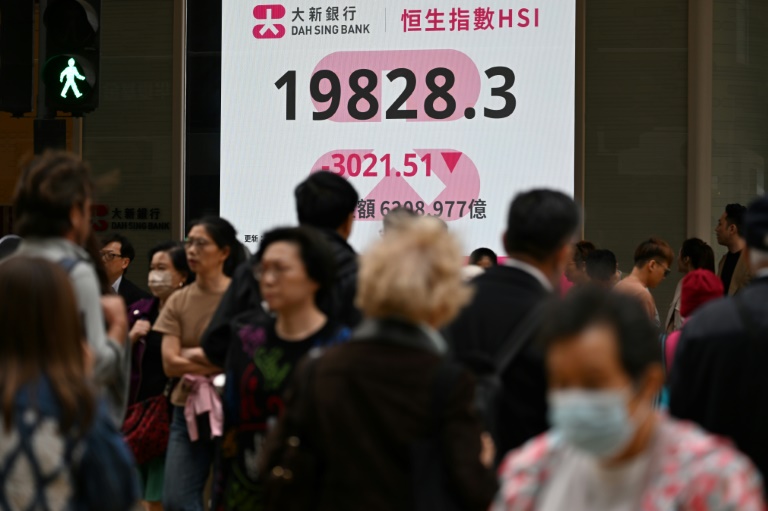Macau Business magazine l April 2025 l Editorial
“Prediction is very difficult, especially if it’s about the future.” This amusing truism, attributed to Nobel laureate in Physics Niels Bohr, neatly encapsulates the challenge of forecasting. Yet, credible economic forecasting is never pulled from thin air. It is grounded in current and recent data patterns, along with a deep understanding of broader socio-economic and political dynamics. Forecasts serve a valuable purpose for decision-makers, business leaders and society at large by instilling a sense of predictability and helping to shape expectations.
However, it’s an entirely different game with a disruptor-in-chief at the helm of the world’s leading powerhouse.
It is still too early to fully grasp the far-reaching implications Donald Trump’s newly launched trade war salvos will have, but we are undoubtedly in uncharted waters, at a critical juncture – one not seen in a century. As put by former US Treasury Secretary Larry Summers, the rationale and modus operandi behind this sweeping, unprecedented offensive are “to economics what creationism is to biology.”
What will the impact of all this on Macau be? At first glance, the direct effects of trade tariffs appear to be minimal. After all, the SAR is an overwhelmingly service-based economy, and the US accounted for just 5.5 per cent of the city’s total external merchandise trade last year.
However, as a highly open economy, Macau is inevitably affected by external developments, particularly those impacting demand for its bread and butter: exports of services, primarily gaming and tourism. The real concern ultimately lies with the impact on Macau’s key visitor source markets, chiefly Mainland China, and, to a lesser extent, Hong Kong.
Regarding the former, a potential further weakening of the renminbi exchange rate – aimed at partially offsetting the tariffs – combined with increased pressure on Guangdong’s neighbouring industrial powerhouses, deserves close attention.
Could this signal a blow to the hopes of those expecting expansionary budget policies? Have we reached a post-pandemic GGR ceiling? How concerned should we be? The crystal ball may not be crystal clear at all, but seen in perspective, the glass is still half-full…
It should also be noted that these massive tariffs had certainly been anticipated – if not necessarily on this scale – by the Chinese central government. Beijing has been preparing for this scenario for quite some time, with a host of measures and policies to mitigate the impact and boost domestic consumption, as unveiled last month by the State Council.
For Macau, the 2025 outlook must necessarily take all these surrounding patterns and trends into account. And come the first day of each new month, all eyes are on the single figure that truly matters for the city’s wealth and public finances: the monthly gross gaming revenue (GGR) tally.
With first quarter figures now in, the MOP57.66 billion (USD7.2 billion) posted so far by the SAR’s core industry accounts for a slim 0.6 per cent year-on-year increase. The sector’s flat performance has led brokerages to lower their growth rate forecasts, and the government itself is suggesting that it may be challenging to meet the full-year MOP240 billion (USD 30 billion) target that was set in the 2025 budget.
In the run-up to this Cabinet’s maiden Policy Address, slated for mid-April, the Chief Executive and the Secretary for Economy and Finance have laid the groundwork for a prudent fiscal approach, warranting “a careful assessment of the future economic situation.”
Could this signal a blow to the hopes of those expecting expansionary budget policies? Have we reached a post-pandemic GGR ceiling? How concerned should we be? Remaining vigilant is key, but there is no reason to sound the alarm just yet.
At this stage, the fact of the matter is that the MOP19.22 billion (USD2.4 billion) monthly average only deviates marginally from the MOP20 billion full-year monthly average required to meet the official forecast. And the traditionally strongest GGR months – May, August, and October –still lie ahead.
However, concerns are understandably mounting in the face of the SAR’s conspicuous reliance on gaming. In 2024, taxes on gaming accounted for 80.5 per cent of the government’s total current revenue, edging closer to the 84.8 per cent recorded in 2019 – before Covid and the crackdown on junkets – when the city’s GGR was 29 per cent higher than last year.
The crystal ball may not be crystal clear at all, but seen in perspective, the glass is still half-full…


